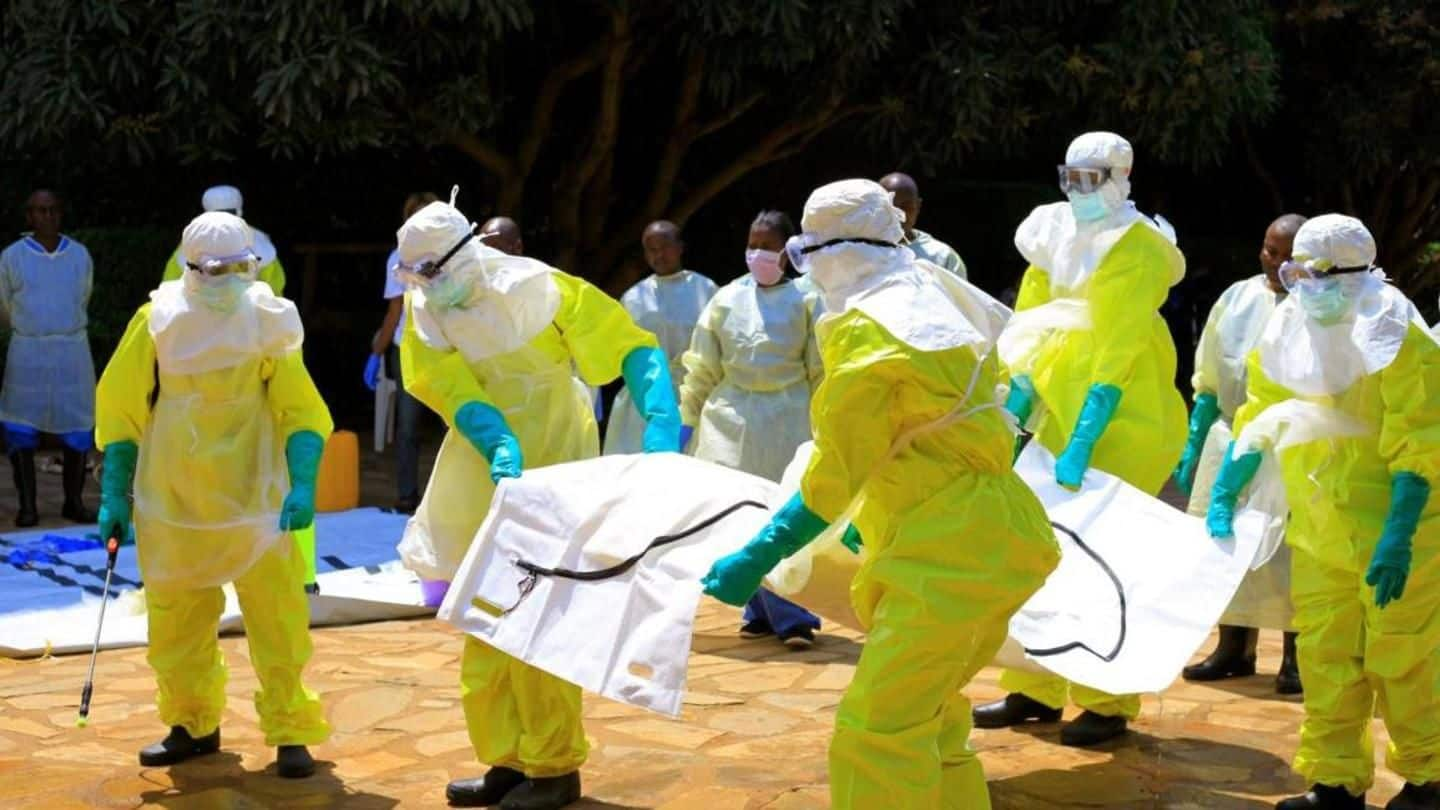
41 dead in Ebola's latest outbreak in DR Congo
What's the story
Forty-one people have died in the latest outbreak of Ebola in DR Congo, health authorities said yesterday, adding that doctors were using a novel drug to treat patients.
Out of 57 recorded cases till Monday, 41 were fatal, the Congolese Health Ministry and UN's World Health Organization (WHO) said.
Last Friday, the Ministry put the tally at 37 deaths, either confirmed or suspected.
10th Outbreak
This is the 10th outbreak of Ebola in DR Congo
Fourteen of the 41 deaths had been later confirmed by lab tests, the Ministry said.
The outbreak is the Democratic Republic of Congo's (DRC) 10th since 1976 when the disease was first identified in the DRC near the Ebola River, a tributary of the Congo.
Its epicenter is Mangina in the region of Beni, in the strife-torn eastern province of North Kivu.
Drug
Doctors have started using the first therapeutic drug against Ebola
For the first time since the outbreak was announced on August 1, one fatality was recorded outside North Kivu, in Ituri province, the Ministry's Directorate for Disease Control said.
It said doctors in Beni had started to use a novel treatment called mAb114.
The treatment is the first therapeutic drug against the virus to be used in an active Ebola epidemic in the DRC.
Working
Here is how the drug works against Ebola
Developed in the United States, the prototype drug, mAb114, is a so-called single monoclonal antibody, a protein that binds on to a specific target of the virus and triggers the body's immune system to destroy the invader.
The antibody was isolated from a survivor of an Ebola outbreak in the western DRC city of Kikwit in 1995, the Health Ministry said.
Unlicensed vaccine
Drug's first human trials were tested in US in May
In May, the US National Institute of Allergy and Infectious Diseases (NIAID) said it was carrying out the first human trials of mAb114 to test it for safety and tolerance.
Use of the experimental treatment in the field comes on the heels of deployment of an unlicensed vaccine, rVSV-ZEBOV, in an earlier outbreak of Ebola in the DRC this year.
Safe and effective
Vaccine trials in West Africa showed rVSV-ZEBOV was safe
The decision to use the vaccine, called rVSV-ZEBOV, came after trials during a pandemic in West Africa showed it to be safe and effective.
Immunization with rVSV-ZEBOV was given to front-line health workers to provide them with additional protection.
Ebola causes serious illness including vomiting, diarrhea, and in some cases internal and external bleeding. It is often fatal if untreated.
Concerns
WHO concerned about rebel forces, militias hampering fight against Ebola
The WHO has expressed concern that the violence in North Kivu, entailing militias who often fight for control of resources, including a notorious Ugandan rebel force called the Allied Democratic Forces (ADF), could hamper the fight against the outbreak.
WHO Director-General, Tedros Adhanom Ghebreyesus, who visited the area on Sunday, called for free and secure access for health workers, the agency said.